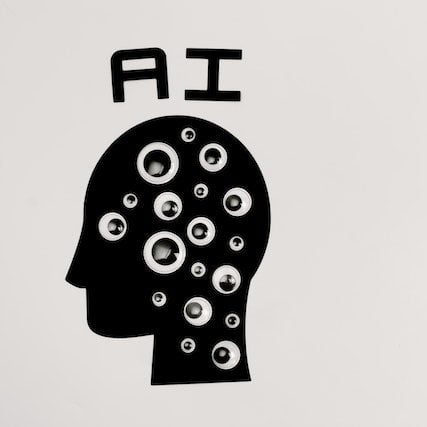
Introduction Artificial Intelligence:
Efficiency enhancingIn recent years artificial intelligence (AI) has emerged as a groundbreaking technology with the potential to revolutionize various industries. With its ability to process vast amounts of data, learn from patterns, and make informed decisions, AI is transforming the way businesses operate and unlocking new opportunities for growth and innovation. From improving operational efficiency enhancing customer experiences, AI is reshaping industries across the globe. In this article, we will explore the rise of AI in business and examine how it is transforming various sectors.
- Enhanced Customer Experiences
One of the most significant impacts of AI in business is the ability to deliver enhanced customer experiences. AI-powered chatbots and virtual assistants have become increasingly prevalent in customer service operations. These intelligent systems can understand and respond to customer queries, provide personalized recommendations, and even handle complex transactions. By leveraging AI, businesses can provide round-the-clock support, minimize response times, and offer tailored solutions, ultimately improving customer satisfaction and loyalty.
Moreover, AI enables companies to analyze vast amounts of customer data to gain valuable insights. By employing machine learning algorithms, businesses can identify patterns, predict customer behavior, and personalize marketing campaigns. This level of personalization helps companies deliver targeted and relevant content to customers, resulting in higher conversion rates and improved customer engagement.
- Streamlined Operations and Increased Efficiency
AI is revolutionizing business operations by streamlining processes and boosting efficiency. For instance, in manufacturing, AI-powered robotics and automation are transforming production lines. Robots can perform repetitive tasks with precision, speed, and consistency, reducing errors and optimizing productivity. These smart machines can analyze data in real-time, detect anomalies, and make adjustments, ensuring higher quality control and minimizing downtime.
AI is also playing a vital role in supply chain management. By analyzing historical and real-time data, AI algorithms can optimize inventory management, demand forecasting, and logistics planning. This leads to better inventory control, reduced costs, and improved delivery timelines. Additionally, AI-powered systems can identify potential bottlenecks in the supply chain, enabling proactive measures to mitigate disruptions and ensure a seamless flow of goods.
- Data-Driven Decision Making
The abundance of data in today’s digital age can be overwhelming for businesses. However, AI provides the tools to harness this data and transform it into actionable insights. Artificial Intelligence algorithms can process large volumes of data, identify trends, and generate valuable recommendations to support decision-making processes. This empowers businesses to make informed choices based on data-driven insights, leading to more accurate predictions and better strategic planning.
In finance and investment, AI-powered algorithms can analyze market trends, historical data, and news sentiment to make informed investment decisions. This technology enables traders and fund managers to identify profitable opportunities, mitigate risks, and optimize portfolio management.
- Revolutionizing Healthcare and Biotechnology
AI is making remarkable strides in the healthcare and biotechnology sectors. In diagnostics, AI-powered systems can analyze medical images such as X-rays, CT scans, and MRIs with exceptional accuracy. These systems can detect abnormalities, identify diseases at an early stage, and assist healthcare professionals in making faster and more precise diagnoses.
Furthermore, AI is driving advancements in drug discovery and development. By analyzing vast amounts of biomedical data, AI algorithms can identify patterns and relationships that may lead to the discovery of new drugs or repurposing existing ones. This technology significantly speeds up the research and development process, potentially saving lives and reducing health care costs.
Conclusion
Artificial intelligence is rapidly transforming various industries, revolutionizing the way businesses operate and interact with customers. From delivering enhanced customer experiences to streamlining operations, leveraging data-driven insights, and revolutionizing health care, AI offers immense potential for growth, efficiency, and innovation. As AI continues to evolve, businesses that embrace this technology will gain a competitive
Advantage in their respective industries.
However, it’s important to acknowledge that the widespread adoption of AI also brings forth certain challenges and considerations. Privacy and security concerns surrounding the collection and use of personal data are critical issues that need to be addressed. Ethical considerations must guide the development and deployment of AI systems to ensure transparency, fairness, and accountability.
Furthermore, the integration of AI into business processes requires skilled professionals who possess a deep understanding of AI technologies. Upskilling and reskilling the workforce will be essential to fully harness the potential of AI and ensure a smooth transition for businesses.
As we look to the future, the impact of AI on business is only set to grow. Emerging technologies such as natural language processing, computer vision, and reinforcement learning will further expand the capabilities of AI systems. Businesses that adapt to this technological shift and embrace AI as a strategic asset will be well-positioned to thrive in the digital age.
In conclusion, the rise of artificial intelligence in business is transforming industries across the board. From improving customer experiences and streamlining operations to enabling data-driven decision-making and driving innovation in healthcare, AI is revolutionizing the way businesses operate. Embracing AI technology and its potential for growth and efficiency will be key for businesses to stay competitive in an increasingly digital and data-driven world. As we navigate the future, harnessing the power of AI responsibly and ethically will be crucial to maximize its benefits for businesses and society as a whole.
Want to learn Learn more About Artificial Intelligence: CLICK HERE


